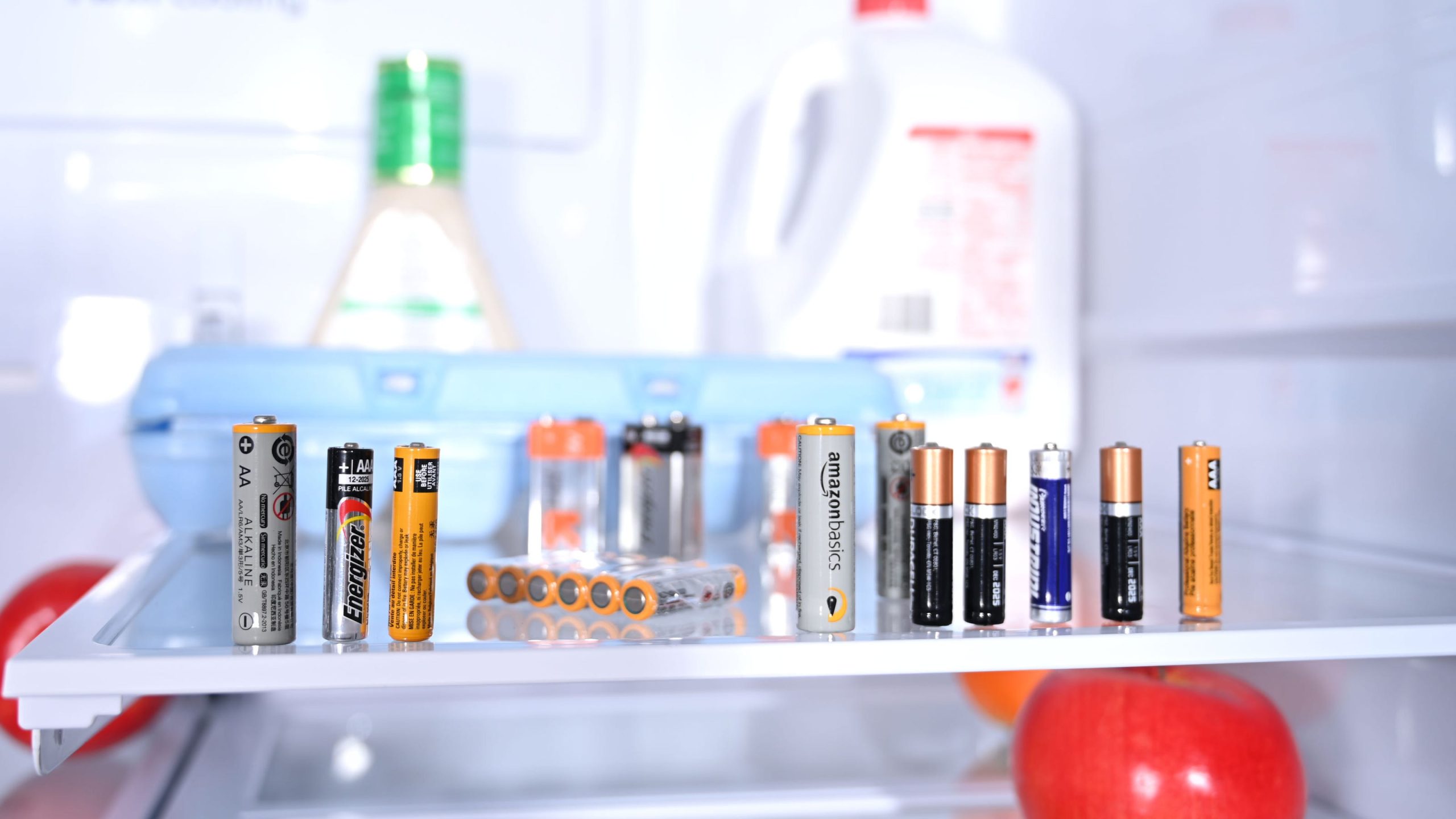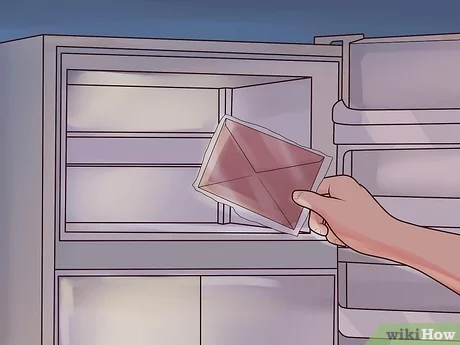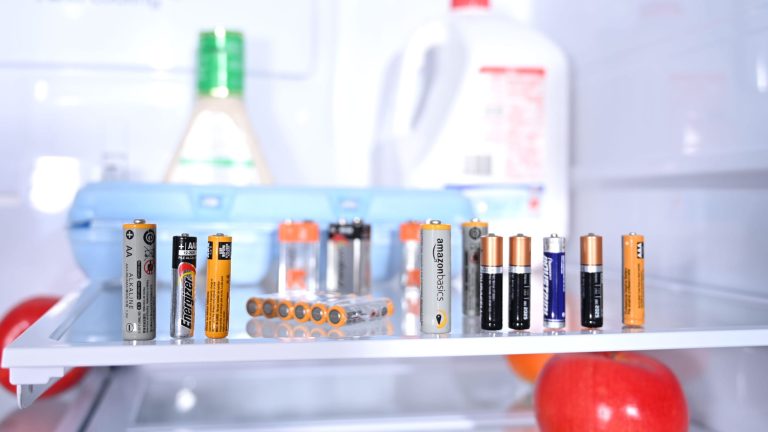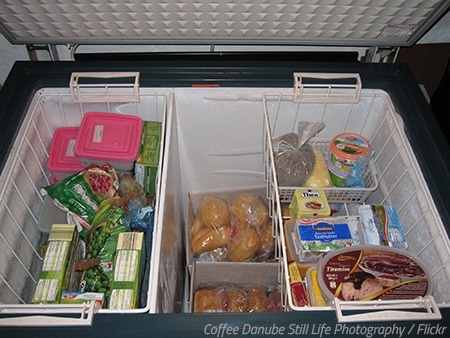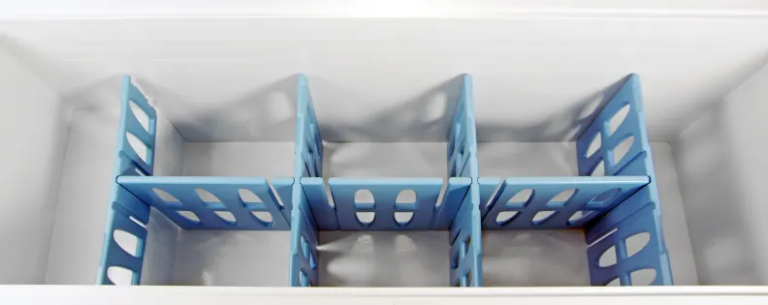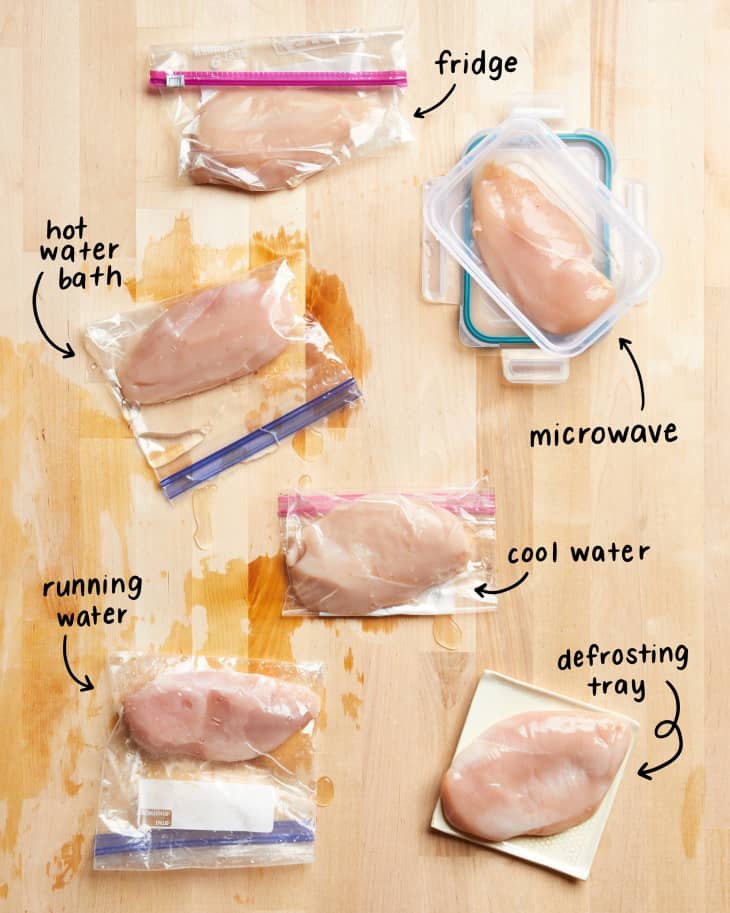To recharge batteries in a freezer, place the batteries in a sealed plastic bag. Store them in the freezer for 24 hours, then allow them to reach room temperature before use.
Recharging batteries in a freezer is a popular method that many people explore. This technique can extend the life of certain rechargeable batteries, especially nickel-cadmium (NiCad) types. By cooling the batteries, you can slow down the chemical reactions that drain their power.
It’s important to note that not all batteries benefit from this process. Always check the manufacturer’s guidelines before attempting this method. Proper handling and storage can make a significant difference in battery performance and longevity. This guide will help you understand the process and its effectiveness for your battery needs.

Credit: www.youtube.com
Introduction To Freezing Batteries
Many people believe freezing batteries can help them last longer. This idea is a common myth. Cold temperatures can actually hurt batteries. They may leak or lose power.
Freezing batteries does not improve their performance. Batteries contain chemicals that react poorly to extreme cold. Facts show that keeping batteries at room temperature is best.
Some argue that freezing can help recharge old batteries. This is not true for most types. Rechargeable batteries work better when stored in cool, dry places.
Consider storing batteries in a dry environment. This helps maintain their charge. Avoid extreme temperatures to keep them functioning well.
Types Of Batteries Suitable For Freezing
Alkaline batteries are common household batteries. They work well in many devices. Freezing them can extend their life. However, results may vary. Store them in an airtight container before freezing.
NiMH and NiCd batteries are rechargeable types. Freezing these batteries can help preserve them. They are sensitive to temperature changes. Always check the manufacturer’s instructions. Avoid freezing batteries with any damage.
Preparing Batteries For The Freezer
Start by cleaning the battery terminals. Use a mixture of baking soda and water. This helps remove corrosion and dirt. A clean terminal ensures a better connection.
Next, dry the terminals completely. Use a lint-free cloth for best results. Always wear gloves during this process to protect your hands.
For proper insulation, wrap each battery in bubble wrap. This protects them from cold air. Use tape to secure the wrap.
Store batteries in a plastic container to avoid moisture. Label the container clearly to find them easily. Keep batteries away from direct contact with freezer walls.
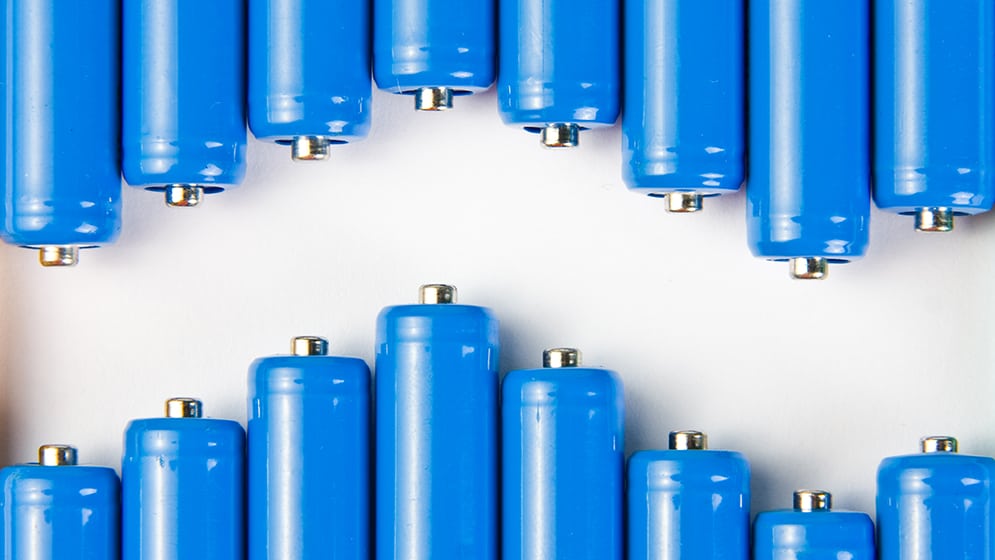
Credit: www.hopptbattery.com
Optimal Freezing Times
Short-term freezing is useful for quick battery recharges. Keep batteries in the freezer for about 12 hours. This helps restore some lost charge. Remember to let them warm up before use.
Long-term freezing can affect battery life. Keeping batteries frozen for too long may lead to damage. Moisture can also enter batteries, causing corrosion.
| Freezing Duration | Effect on Batteries |
|---|---|
| Up to 12 hours | Restores some charge |
| More than 24 hours | Risk of damage and corrosion |
Thawing And Recharging Post-freezing
Thawing batteries after freezing is very important. Start by removing the batteries from the freezer. Let them sit at room temperature for several hours. This allows moisture to escape.
Ensure the batteries are completely dry before recharging. Use a clean cloth to wipe them. Place the batteries in a charger that matches their type.
Follow the manufacturer’s instructions for best results. Avoid overcharging, as it can damage the batteries. Check the batteries regularly during the charging process.
| Best Practices | Description |
|---|---|
| Remove Batteries | Take batteries out of the freezer. |
| Thaw Properly | Let them sit at room temperature. |
| Dry Thoroughly | Wipe with a clean cloth. |
| Use Proper Charger | Match charger with battery type. |
| Monitor Charging | Check batteries during the process. |

Credit: www.usatoday.com
Safety Considerations
Recharging batteries in a freezer can be risky. Potential hazards include leaks or explosions. Batteries may contain harmful chemicals. Always check for damage before placing them in the freezer.
Safe handling of batteries is crucial. Wear gloves to protect your hands. Ensure batteries are stored upright. Keep them away from heat sources and moisture.
For storage, use a container that is non-conductive. Label the container clearly. Keep batteries out of reach of children and pets. Regularly inspect the batteries for any signs of wear.
Effectiveness Of Freezing Batteries
Freezing batteries can improve their performance. Studies show that cool temperatures help reduce chemical reactions. This may extend battery life.
Tests reveal that some batteries work better when frozen. The process slows down the degradation of battery materials. Batteries like NiMH and Li-ion show noticeable benefits.
| Battery Type | Performance Increase |
|---|---|
| NiMH | Up to 30% |
| Li-ion | Up to 20% |
| Lead Acid | Minimal Effect |
Freezing may not work for all battery types. Always check the manufacturer’s guidelines before trying this method.
Alternative Battery Maintenance Tips
Routine care is essential for battery longevity. Keep batteries clean and dry. Check connections regularly for dirt or corrosion. Store batteries in a cool, dry place. Avoid extreme temperatures that can damage them.
Extending battery life requires simple practices. Use a smart charger to prevent overcharging. Disconnect batteries when not in use. Monitor battery levels often. Replace old or damaged batteries promptly.
Use batteries according to their specifications. Avoid mixing old and new batteries. Follow manufacturer guidelines for best results. Proper maintenance can save money and resources.
Frequently Asked Questions
Does Putting Double A Batteries In The Freezer Work?
Putting AA batteries in the freezer can temporarily improve their performance. Cold temperatures slow down the chemical reactions inside. However, this method only provides a short boost and isn’t a long-term solution. Always check battery expiration dates for optimal performance.
Can You Recharge Batteries By Putting Them In The Fridge?
Refrigerating batteries does not recharge them. Cold temperatures can actually harm battery performance. To extend battery life, store them in a cool, dry place, but avoid extreme temperatures. Always follow manufacturer guidelines for optimal care and charging practices.
Can A Frozen Battery Be Recharged?
A frozen battery can sometimes be recharged, but it’s risky. Charging a frozen battery may cause damage or leakage. Allow the battery to thaw completely before attempting to recharge it. Always check the manufacturer’s guidelines for safety recommendations.
How Do You Reset A Battery In The Freezer?
To reset a battery in the freezer, place it in a sealed plastic bag. Leave it in the freezer for about 24 hours. Afterward, remove it and let it warm to room temperature. Recharge the battery fully before use. This can help restore its performance.
Conclusion
Recharging batteries in a freezer is a simple yet effective method to extend their lifespan. By following the steps outlined, you can maximize battery performance and save money. Always ensure safety by checking battery compatibility and condition. Embrace this eco-friendly approach and enjoy longer-lasting power for your devices.
